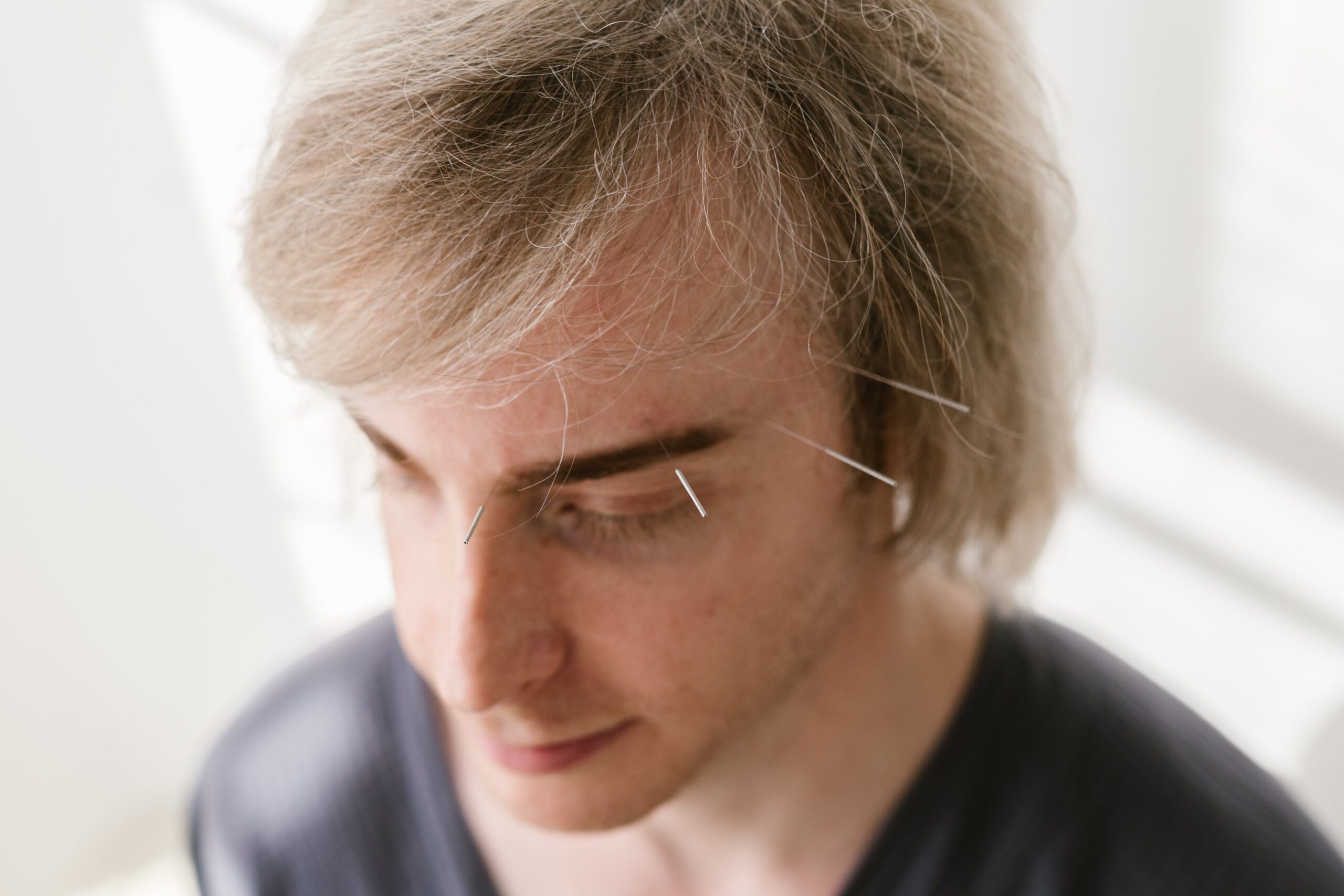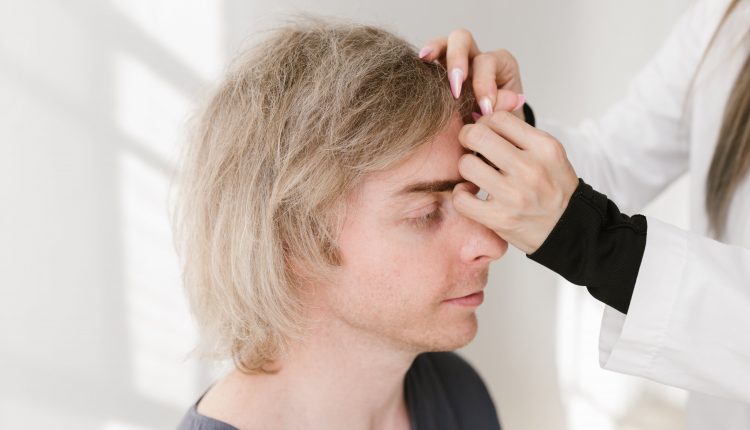HOW TO INCORPORATE ACUPUNCTURE INTO YOUR EVENING ROUTINE FOR RELAXATION

Anxiety relief can be obtained from many sources. Some people who are experiencing acute or chronic anxiety may go to a doctor to receive specific medication. Medications for anxiety relief include tranquilizers, sleeping pills, and sometimes anti depressants. The problem of these types of medication is that they address the anxiety, which is only a symptom of emotional unrest, without achieving relief from the fundamental causes, nor do medications per se help with changing people’s responses to chronic anxiety provoking situations. For anxiety relief, a person can also go to natural therapists who offer extracts from natural herbs and plants which include chamomile, St John’s Wort, valerian and many other herbs.
Symptomatic relief from anxiety can be obtained from the many services offered by allied health professionals which services include massage, aromatherapy, acupuncture and therapies include art, or dance, and music therapies.
Often exercise provides a measure of anxiety relief, and much is said about endorphins which are released by the body when exercising – chemicals which create a euphoric feeling known as a runner’s high and make people feel good and relaxed. For most people there is probably no need to go to the extremes of athletic endeavor and great benefits can be obtained from modest amounts of regular exercise which is well within your individual capabilities. There is no doubt that many people who go frequently to the gym, are using it as a means of stress relief, and perhaps for many “gym junkies”, it could be that they could consider using other means to bring down their levels of stress, as there is little point in exchanging one type of obsessive -compulsive behavior merely for another.
People who suffer from excessive anxiety really need at some point to address the factors which cause it as obtaining what is merely relief from anxiety is not as satisfactory in the long run as finding for yourself a cure.
Obtaining permanent relief from circumstances which presently cause and will continue to cause high levels of anxiety can be achieved by techniques which delve into the causes of your stress. Perhaps you are not seeing the whole picture, perhaps misunderstanding facts and the actual motivations of people who appear to be causing you stress. Often looking at the situation with the help of a trained counselor or mentor can help you to see another person’s point of view, or help you to adjust and adapt better to difficult life situations that you may not be able to change in the immediate or long term future.
Changing your expectations of a situation can often reduce your levels of anxiety and stress. The biggest motivation for finding ways and means to obtain stress relief is that chronic stress and high levels of anxiety are known to cause and contribute to physical illness and disorders in the body. Anxiety and resultant stress is often a cause of eating high calorie “comfort” food which can in turn lead to obesity. Not only does obesity put additional stress on other body organs, it can promote chronic inflammation of the body tissues, leading to serious illness. No matter what the causes are of a person’s anxiety, there is no doubt that if they are feeling ill and depressed, their capacity to deal with the anxiety, and have the energy necessary to go out and make changes, is severely compromised. If people do not take care, the cycle of anxiety and using inappropriate means to resolve it can rapidly lead to a cycle of ill health and depression.
People seek relief from anxiety in an inappropriate manner when they resort to the use of excessive alcohol, smoking tobacco or by using recreational drugs. There are many dangers in using substance abuse as a means of anxiety relief. No one doubts that in the very short term these methods are effective, but there is a negative side to drug use, a major point being that once addictive drugs are introduced, even more intense symptoms of anxiety can be expected to occur with any level of withdrawal.
L-Theanine, naturally occurring in green tea, proves effective in dealing with anxiety symptoms and providing anxiety relief.
Anxiety is a state of intense fear, uncertainty, uneasiness, or apprehension due to anticipation of an imagined or real threatening future event. Anxiety can be both physically and psychologically devastating to the Anxiety sufferer’s life. Anxiety is often sub-categorized according to the focus of the perceived threat. There is social anxiety, separation anxiety, dating anxiety, performance anxiety, math anxiety, etc. Stress and anxiety often go hand in hand and can result in anxiety depression as the individual feels powerless to receive any anxiety help.
There are a variety of anti-anxiety treatments to consider in overcoming anxiety. For some, anxiety medications prove to be a source of anxiety relief. Other’s prefer not to use any of the anti-anxiety drugs and opt for more natural cures for anxiety management. These may include herbs for anxiety, acupuncture anxiety treatments, anxiety vitamins, aromatherapy for anxiety relief, even hypnosis has has proved beneficial overcoming anxiety.
L-Theanine is a unique free form amino acid found only in the tea plant and in the mushrooms Xerocomus badius and certain species of genus Camellia, C. japonica and C. sasanqua. Often drinkers of green tea report a feeling of calmness they feel after ingesting a cup or two even though green tea has roughly half the caffeine of coffee. This is due to the high L-Theanine content.
In addition to reducing anxiety symptoms, studies have shown L-Theanine may be effective in promoting concentration, supporting the immune system, improving learning performance, lowering blood pressure, increasing formation of the inhibitory neurotransmitter GABA, and increasing brain dopamine levels among other positive benefits with no known downside.
Studies in cooperation with Taiyo Kagaku Co., The University of Shizuoka, and The Family Planning Institute of Japan have shown that women taking 200 mg L-Theanine daily have lower incidence of PMS symptoms. These symptoms include physical, mental, and social symptoms. Overall, a significant alleviation of PMS symptoms by L-Theanine was observed.
While still under investigation, L-Theanine appears to have a role in the formation of the inhibitory neurotransmitter Gamma Amino Butyric Acid (GABA). GABA blocks release of the neurotransmitters dopamine and serotonin, playing a key role in the relaxation effect.
Everyone knows the effects stress and anxiety can have on an individual’s physical state of well-being. Fascinating neurochemistry research has revealed that given a shot of GABA essentially turned back the clocks in the brains of older monkeys, whose brain function briefly operated at levels normally seen in monkeys less than half their age.
GABA, or gamma-amino butyric acid, is a neurotransmitter chemical that is essential for optimizing how brain cells transmit messages to each other and acts to put a damper on unwanted brain signaling activity. Although GABA’s age-related decline has not been documented in humans, a host of studies in mammals, including other primates, suggests that a similar process is at work in people. Monkeys ages 26 and 32 — considered old age for monkeys — that got GABA directly delivered to their neurons responded to visual patterns, such as flashing vertical and horizontal lines, in much the same way as monkeys aged 7 to 9 years old did.
Without GABA delivery, the monkeys’ aged brains had more difficulty firing neurons that specifically gauge various aspects of depth perception, motion and color. Instead, older monkeys have more random firings that make it difficult to observe visual nuances. In younger monkeys, GABA had no effect since their brains already had optimal GABA functioning.
L-Theanine is considered to be safe based on its historical use as a component of tea and on favorable toxicology studies. Tea is the most consumed beverage worldwide after water, and has been consumed for thousands of years by billions of people. It is estimated that a heavy tea drinker (6-8 cups daily) will consume between 200 to 400 mg of L-Theanine daily.
While dosage for depression and anxiety disorder remain individual, it is recommended to take 100 to 200 mg 1 to 3 times daily for anxiety relief. Based on the results of clinical studies, it has been established that L-Theanine is effective in single dosages in the range of 50-200 mg. It is suggested that subjects with higher levels of anxiety take a dose at the higher end of the effective range (100 – 200 mg) for overcoming anxiety.
Alternative Treatments For Anxiety And Depression
There are a lot of treatments for anxiety and depression on the market and not everything is good for your body. Alternative treatment for anxiety and depression is a great and natural way to get relief. You should understand though, that most alternative medicine to treat anxiety and depression is used in cases where the condition is mild. People with severe depression or anxiety, to the point that it is threatening their lives or the lives of others, should not hesitate to seek medical attention.
Here are the top 4 alternative treatments for anxiety and depression:
1. Herbal Remedies:
St. John’s Wort is probably the most popular of all of the herbal remedies used to treat depression and anxiety. St. John’s Wort is effective at combating mild depression and anxiety in a natural way. It has been used for centuries in this regard and works very well. Other herbal remedies that work to reduce anxiety and depression are Chamomile and Valerian. Some herbal remedies can interfere with your subscription medicine. It is very important to consult your therapist before starting to use both.
2. Acupuncture:
Acupuncture is an ancient healing art that pinpoints pressure points and uses needles to cure pain as well as treat a variety of other different types of ailments and mild conditions. There are some who swear by acupuncture as an effective pain relief as well as a relief for anxiety. The treatment sounds dreadful, but it is actually very relaxing. It will not hurt you to try acupuncture, even if you are on medication for anxiety and depression.
3. Massage Therapy:
Massage therapy will certainly not hurt you. To the contrary, it will feel really good and relaxing to you. You should treat yourself to massage therapy whether or not you have anxiety as it will relieve tension and stress. While massage therapy certainly works wonders to relieve physical anxiety and tension, it will not work to relieve the thought process that is usually generated by anxiety. For this reason, massage therapy works almost like a tranquilizer. It is a lot more expensive, but a lot less harmful.
4. Aromatherapy:
Aromatherapy is another Eastern healing art that has been around for centuries. This is based on using essential oils that are derived from herbs, barks, flowers, fruits or other organic matters and either massaging them into the skin or inhaling them. Lavender is one of the few essential oils that is actually safe to use on the skin and is one that is often used to treat anxiety and depression. For anxiety and depression relief you can use lavender as a massage oil or put it into an infuser and inhale the fragrance. The concept of aromatherapy is that the fragrance will be absorbed into the bloodstream either through the skin or the lungs and begin healing.
You can try alternative treatments for depression and anxiety but remember that they offer no guarantee and should only be used in mild to moderate cases. They are generally safe to use and all, with the exception of herbal remedies, are safe to use when you are taking medication.


Comments are closed.